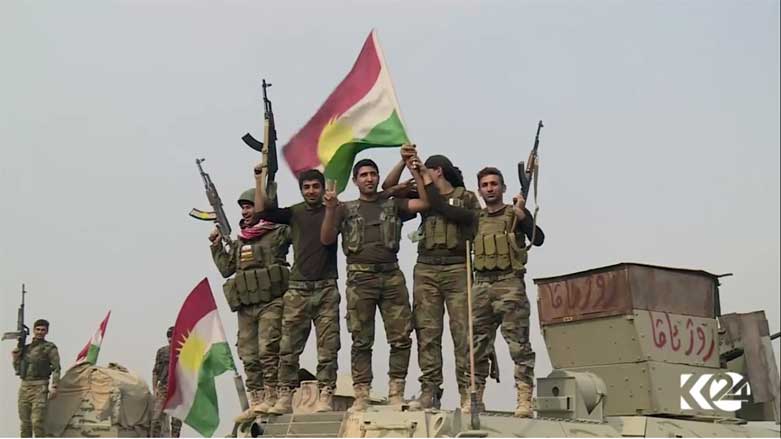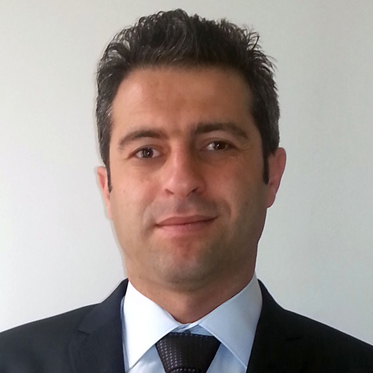Thousands of Rojava Peshmerga prevented from battling IS in Syria

ERBIL, Kurdistan Region (Kurdistan) – As the battle of Peshmerga and YPG, the two prominent Kurdish forces in Iraq and Syria, against the Islamic State (IS) grows more fiercely, the story of a brigade of Syrian Kurdish fighters in Iraq reveals interesting dynamics on the Kurdish internal level.
Rojava Peshmerga, a brigade of about 5,000 Syrian Kurdish fighters who are battling against IS in the vicinity of Mosul in Iraq, are prevented from returning to Syria to fight against IS.
In one astonishing instance, when the Kurdistan Regional Government (KRG) in Iraq supported the YPG in the battle of Kobani in 2014 by sending more than 20 vehicles with Peshmerga forces to the town of Kobani through Turkey, none were Syrian Kurds.
The reason for keeping the Syrian Kurdish fighters in Kurdistan Region by KRG is to avoid an armed conflict between them and the YPG.
The concerns for a potential clash is over tensions between the two main political blocks in Rojava. The Democratic Union Party (PYD), Rojava's main ruling party, and its opposition, Syria's Kurdish National Council (KNC, also known as ENKS in Kurdish).
ENKS is an umbrella body based in Erbil, made up of smaller Syrian Kurdish political parties, ideologically linked to KRG's Kurdistan Democratic Party (KDP) and the Patriotic Union of Kurdistan (PUK).
The disagreement between Rojava Peshmerga and the YPG appears to be more political than a military issue; the YPG is the armed wing of the PYD, and ENKS views itself as the political umbrella of Rojava Peshmerga.
PYD, whose forces battle against the Turkey-based Syrian Islamist rebels and al-Qaeda affiliated groups, views ENKS as an opponent because the latter is part of the Turkey-based Syrian opposition, known as the Syrian National Coalition.
Moreover, PYD is ideologically linked to the PKK and sees ENKS as having links to both KDP and Turkey.
ENKS, on the other hand, accuses PYD of having ties with the Syrian regime. ENKS believes the Syrian regime and PYD had forged a tacit agreement, allowing the latter to control Rojava without a fight when the Syrian army withdrew from the Kurdish areas in July 2012.
This competitive relationship between PYD and ENKS has been historically strained by deep mutual suspicion, and recently exacerbated by PYD's arrest of the local activists.
In an exclusive interview with Kurdistan24 on Monday, Sharvan Derky, the spokesperson of Rojava Peshmerga, said their forces are waiting for a decision by President Masoud Barzani.
"The PYD exploits propaganda that there will be infighting if we return to Rojava, so we are doing our best to avoid it," he said.
Derky pointed out that YPG ideologically is linked to the democratic nation notion of Abdullah Ocalan, the jailed Kurdistan Workers Party (PKK) leader. This concept urges equality and coexistence among the various ethnic and religious groups.
"The YPG are accepting Arabs and Turkmen who have been opposing Kurdish rights in Syria and Iraq, but not allowing our Kurdish fighters just because they are not following Ocalan's thought," he said.
Furthermore, Derky stated the PYD has cracked down against ENKS activists and has arrested ordinary citizens.
"Most of the Syrian Kurds left Rojava because of the hard living conditions and the ill treatment by the local authorities, and if we accept joining them on their conditions [under the PYD flag and thought], we will be partners in their violations," Derky said.
However, the PYD officials look at the matter differently. They point to Rojava Peshmerga's financial and logistic support.
Speaking to Kurdistan24, Nawaf Khalil, a spokesman for the Syrian Kurdish Democratic Union Party (PYD) in Europe, said on Monday that the ENKS is causing political rifts by using the case of Rojava Peshmerga. "In Iraqi Kurdistan, the PKK and Iranian Kurds are fighting alongside the Peshmerga against Daesh [IS], while the ENKS rejects the YPG administration over Rojava Peshmerga," he said.
It is worth noting that the KRG President Masoud Barzani mediated between the PYD-led ruling council of Rojava and the ENKS. Three agreements were signed.
The first agreement, the Hawler I Agreement, was signed in Erbil on June 11, 2012. The second accord, the Hawler II Agreement, was reached in Erbil on Dec. 24, 2013, and the third one, known as the Duhok Agreement, was signed in Duhok on Oct. 22, 2014.
However, none of the accords materialized because of political disagreements between the two blocks. Hence, it is unlikely that the Rojava Peshmerga will return to Rojava anytime soon.
Editing by Delovan Barwari
